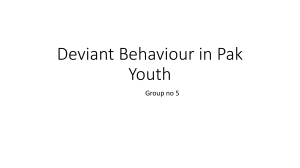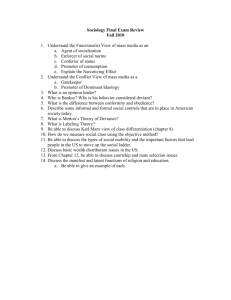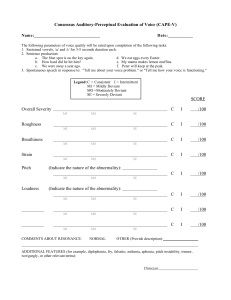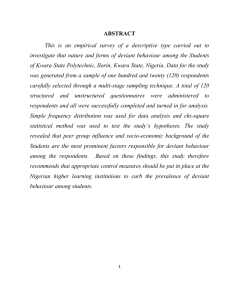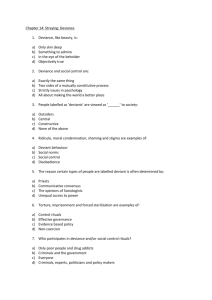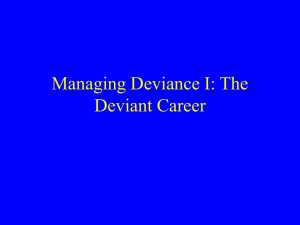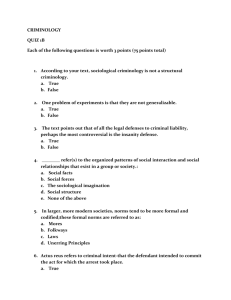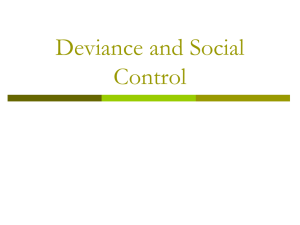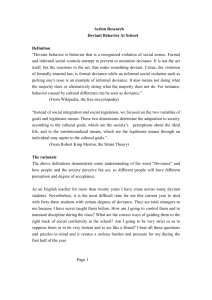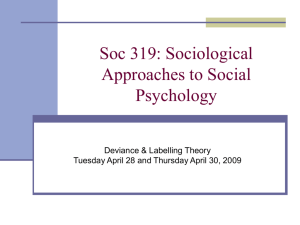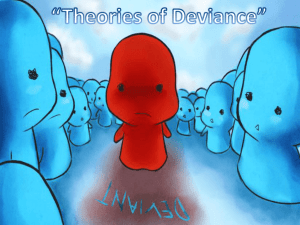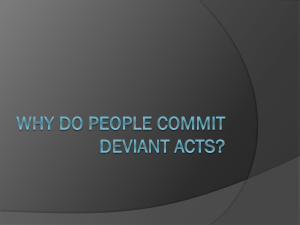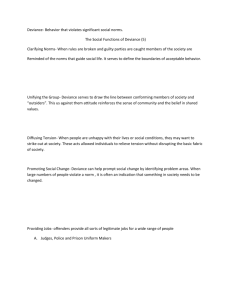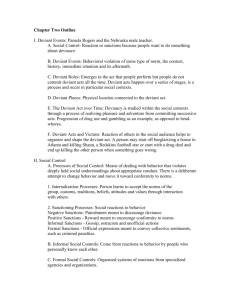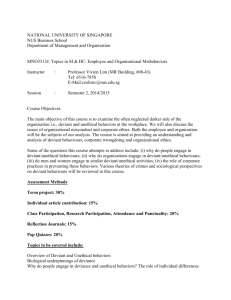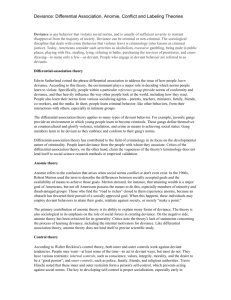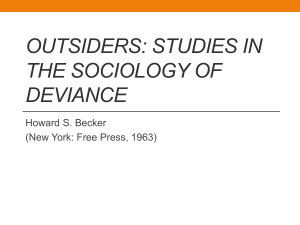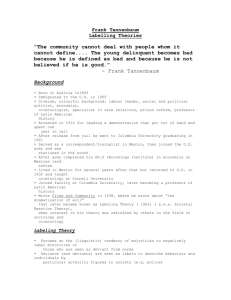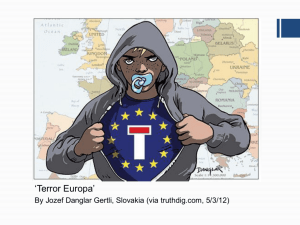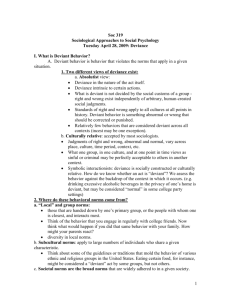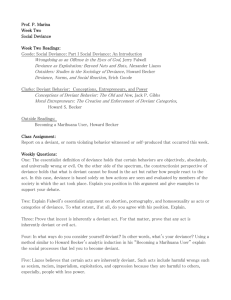Deviance and Social Control Read chapter 13 of Knuttila's text, and
advertisement
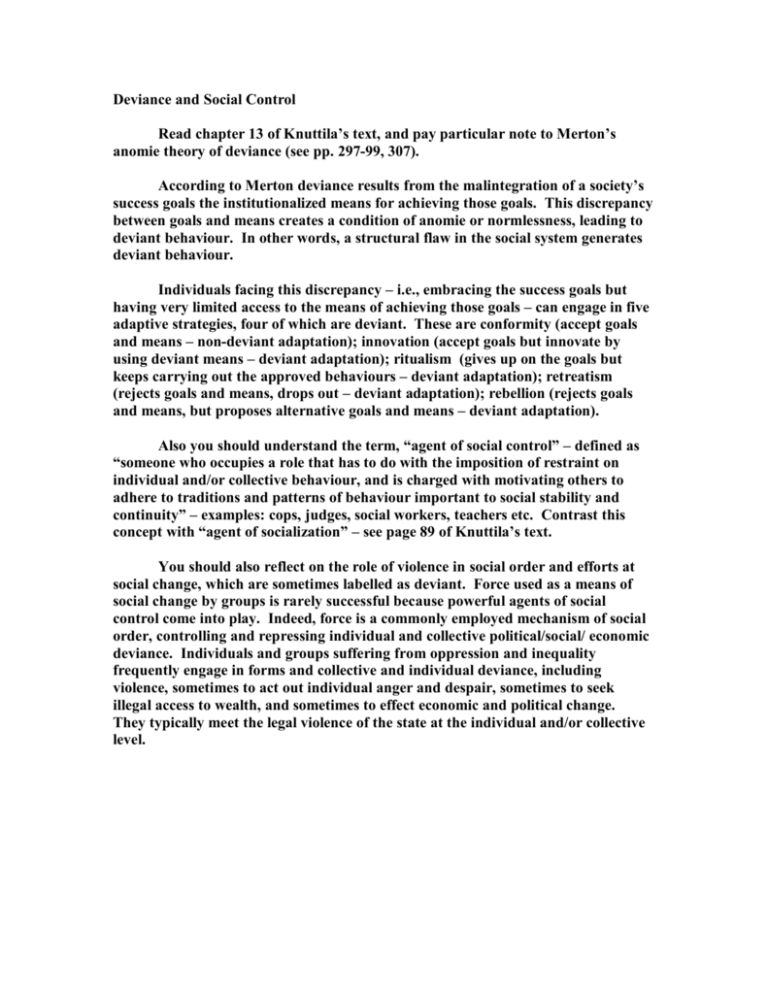
Deviance and Social Control Read chapter 13 of Knuttila’s text, and pay particular note to Merton’s anomie theory of deviance (see pp. 297-99, 307). According to Merton deviance results from the malintegration of a society’s success goals the institutionalized means for achieving those goals. This discrepancy between goals and means creates a condition of anomie or normlessness, leading to deviant behaviour. In other words, a structural flaw in the social system generates deviant behaviour. Individuals facing this discrepancy – i.e., embracing the success goals but having very limited access to the means of achieving those goals – can engage in five adaptive strategies, four of which are deviant. These are conformity (accept goals and means – non-deviant adaptation); innovation (accept goals but innovate by using deviant means – deviant adaptation); ritualism (gives up on the goals but keeps carrying out the approved behaviours – deviant adaptation); retreatism (rejects goals and means, drops out – deviant adaptation); rebellion (rejects goals and means, but proposes alternative goals and means – deviant adaptation). Also you should understand the term, “agent of social control” – defined as “someone who occupies a role that has to do with the imposition of restraint on individual and/or collective behaviour, and is charged with motivating others to adhere to traditions and patterns of behaviour important to social stability and continuity” – examples: cops, judges, social workers, teachers etc. Contrast this concept with “agent of socialization” – see page 89 of Knuttila’s text. You should also reflect on the role of violence in social order and efforts at social change, which are sometimes labelled as deviant. Force used as a means of social change by groups is rarely successful because powerful agents of social control come into play. Indeed, force is a commonly employed mechanism of social order, controlling and repressing individual and collective political/social/ economic deviance. Individuals and groups suffering from oppression and inequality frequently engage in forms and collective and individual deviance, including violence, sometimes to act out individual anger and despair, sometimes to seek illegal access to wealth, and sometimes to effect economic and political change. They typically meet the legal violence of the state at the individual and/or collective level.
